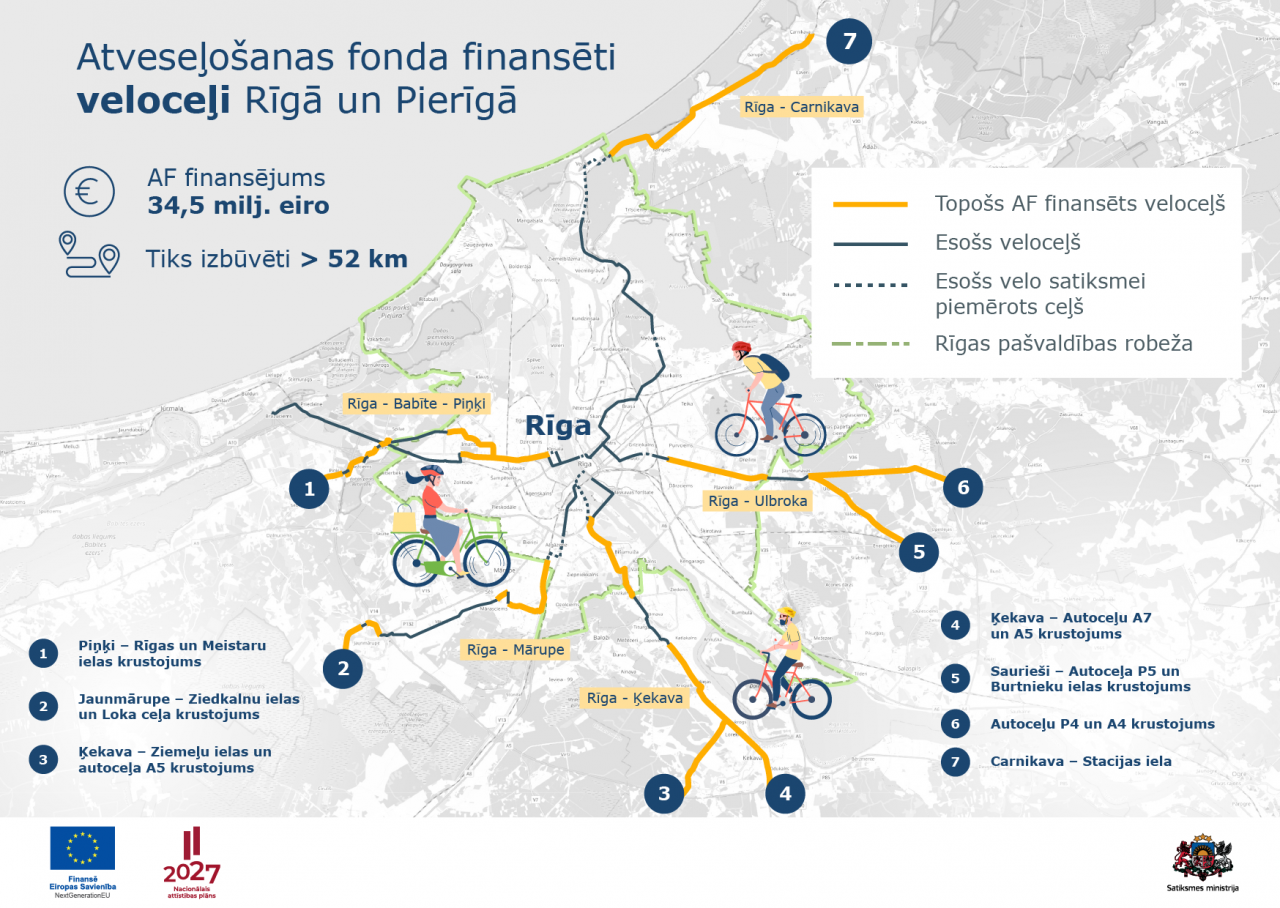A.Vilks discusses with EU commissioners for regional policy and budget about the interests of Latvia after 2013
On Friday, December 16, Finance Minister Andris Vilks participated in the General Affairs Council in order to continue protection of Latvian Cohesion Policy (European Union structural funds and Cohesion Fund) interests after 2013. After the meeting the Minister met individually with EU Commissioner for Regional Policy Johannes Hahn and Budget Commissioner Janusz Lewandowski.
During the meetings the Finance Minister emphasised that Latvia cannot accept the proposal of the European Commission (EC) to impose Cohesion Policy ceilings on each Member State at the level of 2.5% of GDP (equal to all countries), which is considerably less than 3.7% of gross product, which Latvia receives in the time period 2007-2013. He also stressed that Latvia objects to transferring of funding to more developed EU regions. Such proposal is unfair taking into account that Latvia is one of the most successful acquirers of Cohesion Policy funding among EU Member States.
“For Latvia the most painful is the EC proposal to introduce Cohesion Policy ceilings at the level of 2.5% of GDP for all Member States. Introduction of such ceilings means that EU funding will be reduced to individual less developed countries, including Latvia, for which EU funding is practically the only source of funding for economic growth and development,” said the Finance Minister.
During the Council of Ministers A.Vilks informed participants of the Council that for Latvia it is important to start implementation of EU funds in January 2014. In order to ensure this it is necessary to develop timely the National Strategic Reference Framework (EU level document), which would give enough time for Member States to develop and approve the Partnership Agreement and operational programmes till 2014.
The Minister also said that the Cohesion Policy should be thematically focused so that implementation of it would lead to considerable outcomes and demonstrate added value. Therefore it would be necessary to establish a system that would make each Member State to choose and implement a limited number of priorities that would be clearly defined and understandable thus ensuring effective achievement of results.
The Cohesion Policy should also be a result-oriented policy within the framework of which Member States would be obliged to report on achieved results rather than the amount of utilized funds thus putting emphasis on effectiveness of the policy. Latvia believes that such re-orientation is possible if the burden caused of controls of expenditure eligibility is reduced within the European Union funds system. This was the first Council of Ministers fully devoted to the Cohesion Policy thus demonstrating how important this tool is for growth promotion in the European Union.
Information prepared by:
Agnese Belkevica
Deputy Head of the Communication Division
Phone 67083938
Agnese.Belkevica@fm.gov.lv
